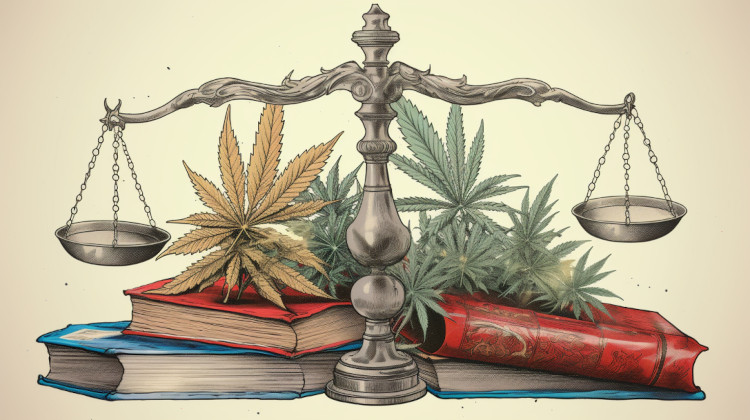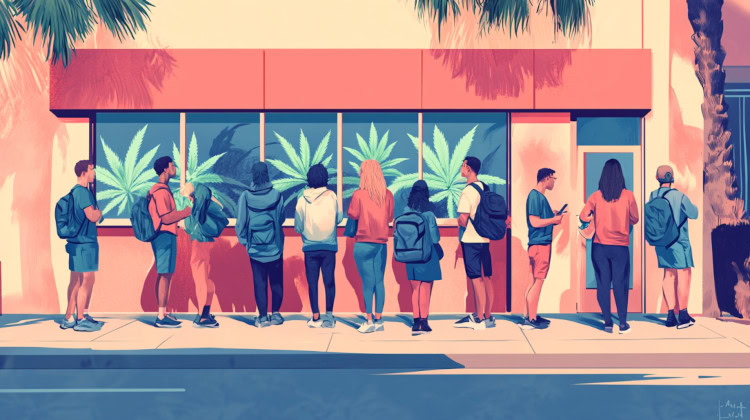Nebraska has yet to implement its voter-approved medical cannabis program. The most recent blow to reform efforts came when LB677, the bill needed to implement medical cannabis regulations, died in the state legislature on May 20, 2025.
At the heart of this failure are Nebraska policymakers who have been furiously fighting voter-backed cannabis reform.
For instance, U.S. Senator Pete Ricketts, who in 2021 stated, "If you legalize marijuana, you're gonna kill your kids," co-authored an op-ed with Nebraska Attorney General Mike Hilgers urging lawmakers to refrain from facilitating the medical cannabis program's implementation, arguing that it could complicate ongoing legal challenges against it.
The Legal Battle Against Nebraska's MMJ Initiative
After voters approved the Nebraska medical cannabis initiative, Attorney General Mike Hilgers and former State Senator John Kuehn filed lawsuits alleging widespread fraud in the petition process, citing issues like notary malfeasance and invalid signatures.
When a Lancaster County District Court judge dismissed these claims, ruling that the petitions had sufficient valid signatures, Hilgers appealed this decision with the Nebraska Supreme Court.
The timeline for appeals in Nebraska is generally 6 to 12 months. The appeal was filed in December 2024, so stakeholders expect a decision by the end of the year, although timelines vary.
Even after a decision is made, voters anxiously awaiting safe, legal access to cannabis in Nebraska may be disappointed as politicians find new ways to oppose or delay medical marijuana’s implementation.
What's Powering this Resistance to Reform?
This is a reasonable question considering the widespread public approval for medical cannabis. The pushback to cannabis legalization is taking place on both the national and state levels.
A peer-reviewed study published in PLOS ONE found that the pharmaceutical industry experiences an average market loss of nearly $10 billion for each state that legalizes medical or recreational cannabis, including substantial declines in opiate sales. Given the size of the pharmaceutical lobby in our nation, it's no surprise that cannabis has become their primary target.
Combined with existing biases that cannabis is an illegal narcotic, not a potential treatment for pain and addiction, it's difficult to convince entrenched bureaucrats of the benefits of a safe, legal market.
The Heart of the Issue
The fundamental battle at the heart of this issue is the right to medical self-determination, and the dismissal of cannabis as a treatment option for pain or substance use disorder, despite the growing evidence that cannabis is saving lives.
For many patients, cannabis is an offramp that helps them navigate away from drug addiction or pain-related opiate use. It isn’t a gateway drug as some lobbyists and organizations claim.
There's no one-size-fits-all solution that works for every substance abuse, mental health, or pain patient, and we need to embrace all options available to address our nation's health and overdose crisis.
This lack of understanding is costing lives, and it is a catalyst behind the battle against cannabis reform nationwide.
What Can Nebraska MMJ Patients Do?
First, don't risk your safety or freedom. Buying cannabis on the black market puts you at risk of imprisonment, and worse, exposes you to dangerous black market substances like methamphetamine, counterfeit prescription drugs, and opiates.
If you're currently in a situation where you need safe, tested cannabis and can no longer wait while this bureaucratic game plays out, consider temporarily moving to a neighboring state with a legal program, like Colorado, Missouri, Iowa, or South Dakota. I understand the gravity of this recommendation, as I'm currently a medical cannabis refugee under care of a physician in a neighboring state while the legalization battle plays out in my home state. The financial and emotional toll is understandably insurmountable for most.
If you're unable to move to an area where you can be safely treated, even temporarily, talk to your doctor about other treatment options. Nebraska's legalization initiative is self-executing. It's already legal to possess up to 5 ounces with a physician's recommendation. There is no specific list of qualifying conditions, and no state registration is required.
That said, most doctors are unwilling to recommend cannabis while the legal appeal is pending. Also, recognize that some law enforcement officers are unwilling to recognize the validity of the law. Even if you ultimately win against unlawful possession charges, the legal battle can prove costly.
Consider joining organizations like ASA, MPP, and NORML to help them fight for reform. Most importantly, talk to your friends, family, neighbors, and representatives. Share your story. Nothing is more powerful on the political battlefield than personal truth. Fifty years ago, it was inconceivable that cannabis would be medically legal in all but a handful of states. Personal stories of hope and recovery are what fuel this movement toward compassion and personal autonomy.
Finally, never give up. Victory is inevitable when walking the higher path.
Keep up with your state's cannabis laws and regulations, and sign up for NuggMD's Weekly Sesh newsletter for consumer stories, tips, and analyses on how changing regulations and resources may impact patients.
The information in this article and any included images or charts are for educational purposes only. This information is neither a substitute for, nor does it replace, professional legal advice or medical advice, diagnosis, or treatment. If you have any concerns or questions about laws, regulations, or your health, you should always consult with an attorney, physician or other licensed professional.




